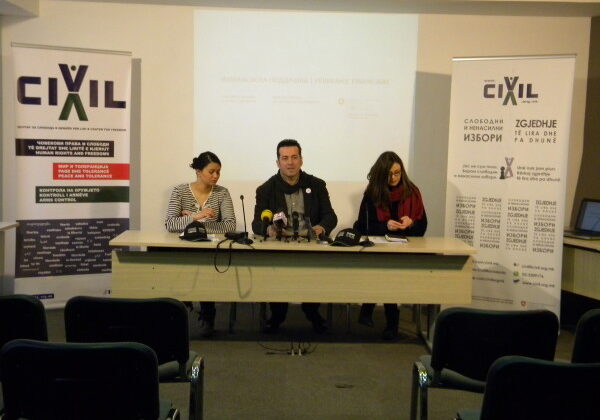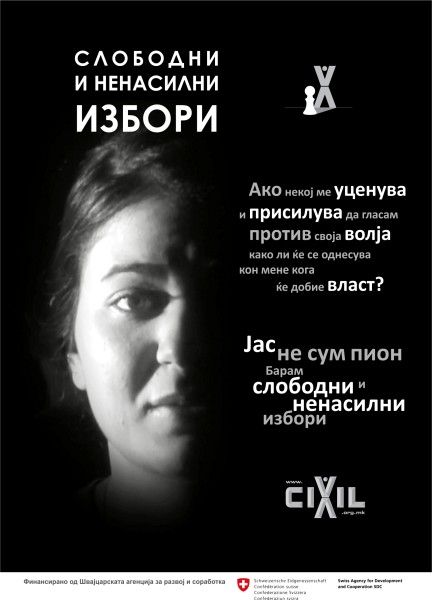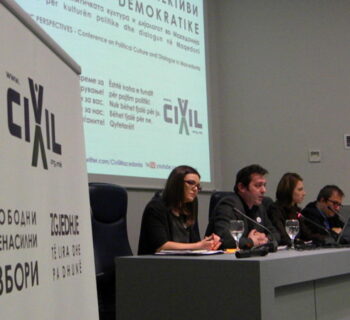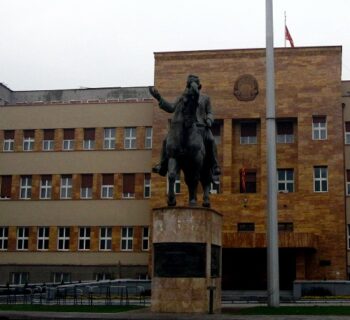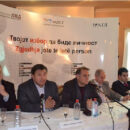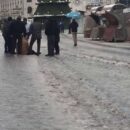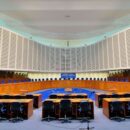Although no major incidents and direct violence were registered, these local elections once again showed that big and serious issues are still open as regards the system and its abuse of the main stakeholders in the electoral process (preliminary assessment of the local elections at the press-conference, 8 April 2013).
 The second round of the local elections is also characterised by numerous irregularities, incidents, tensions and pressures. According to Civil’s preliminary assessment, it cannot be said that this year’s local elections were free and nonviolent. The structural violence was present before and in the course of the entire electoral period. Although no major incidents and direct violence were registered, these local elections once again showed that big and serious issues are still open as regards the system and its abuse of the main stakeholders in the electoral process. Many of the campaigns were long-running and underground whereby the voters were prevented from voting freely and according to their beliefs, and were conditioned by different means to vote in a manner that in their opinion would be the least harmful to them, their existence, and even their safety. The abuse of institutions and resources on a local and central level was systematic and massive.
The second round of the local elections is also characterised by numerous irregularities, incidents, tensions and pressures. According to Civil’s preliminary assessment, it cannot be said that this year’s local elections were free and nonviolent. The structural violence was present before and in the course of the entire electoral period. Although no major incidents and direct violence were registered, these local elections once again showed that big and serious issues are still open as regards the system and its abuse of the main stakeholders in the electoral process. Many of the campaigns were long-running and underground whereby the voters were prevented from voting freely and according to their beliefs, and were conditioned by different means to vote in a manner that in their opinion would be the least harmful to them, their existence, and even their safety. The abuse of institutions and resources on a local and central level was systematic and massive.
The conduct of the political actors at these elections was exceptionally poor. The political parties in their pre-election campaign did not mince words or choose means to exert strong pressure over the electorate. The non-democratic methods and illegal behaviour became a rule and daily routine.
A serious demographic intervention for ethnic and party objectives was openly carried out at these elections. The poverty was heavily abused in numerous manners only to satisfy the appetites for power.
Many of the media were obedient instruments in the hands of the political actors and confirmed the picture of a country in which the freedom of speech and the media is on a very low level.
The rule of law and observance of human rights and freedoms, particularly the right to freedom of choice and expression of the political will of the citizens have turned into hot air.
The nationalistic policies and practices have been disrupting the interethnic relations in the country for years, occasionally instigating an eruption of tensions and violence. They were systematically used in this electoral process as well. The citizens will be the ones to feel the repercussions of the political elites’ nationalism.
 Civil bases its findings and reports on the work of over 160 people who partook in the Free and Nonviolent Elections Project, deployed throughout the country in various teams and working bodies. The project is financed by the Swiss Agency for Development and Cooperation.
Civil bases its findings and reports on the work of over 160 people who partook in the Free and Nonviolent Elections Project, deployed throughout the country in various teams and working bodies. The project is financed by the Swiss Agency for Development and Cooperation.
The monitoring of the electoral process started on 17 December and will continue until the total completion of all activities related to the elections. The project resulted in a strong media campaign for the traditional and new media, and a comprehensive report and analysis will be published in the following period, as well as a documentary film about this electoral process.
This post is also available in: AlbanianMacedonian
 Македонски
Македонски Shqip
Shqip English
English
